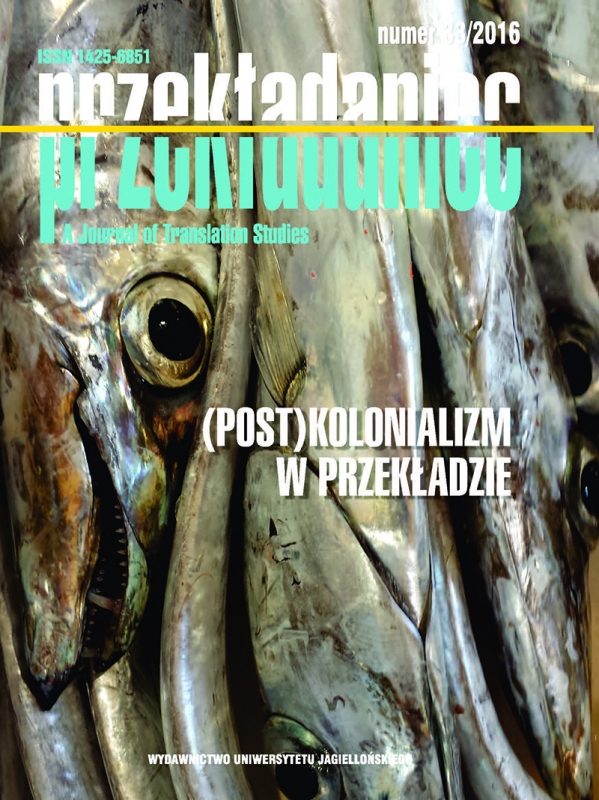„Widział na ulicy Murzyna, ale nie ludożercę”. O tłumaczeniu i poprawności politycznej
“He Saw a Black Man in the Street, but Not a Cannibal”. On Translation and Political Correctness
Author(s): Michał BorodoSubject(s): Studies of Literature, Recent History (1900 till today), Translation Studies
Published by: Wydawnictwo Uniwersytetu Jagiellońskiego
Keywords: political correctness; children’s literature translation; literary translation; Janusz Korczak;
Summary/Abstract: The article focuses on Kaytek the Wizard, the English translation of Janusz Korczak’s children’s classic Kajtuś czarodziej, originally published in Poland in 1933. Translated by Antonia Lloyd-Jones, the book was published by Penlight Publications in New York in 2012, almost eighty years after the original publication. The article begins with an overview of the theoretical context of translating children’s literatur with regard to issues such as censorship, political correctness and ideological manipulations. It demonstrates that contentious passages have often been mitigated in order to create a commercially or ideologically “proper” text, for example in the former countries of the Eastern Bloc, Spain or contemporary America. It then describes the context of the publication of the English version of Korczak’s classic, shedding light on the roles of the copyright holder and translation commissioner, the publisher and the translator, also mentioning the English language reviews of the translation which appeared in literary journals. Following that, the article examines the translator’s treatment of the original expressions and passages concerning racial issues and Black people, which would be considered racist today. These include references to Africans as “savages”, “apes” or “cannibals”, the reflection of the European racial stereotypes of that period. It is demonstrated that in her treatment of such lexical items the translator adopted a middle course, retaining some of the contentious passages but also partly omitting and toning down other controversial examples in question. The article also reflects on the role and constraints on the literary translator, who may be confronted with the ethical dilemma of either respecting the integrity of the original and recreating the collective consciousness of a bygone era or appropriating the original text through eliminating the passages negatively portraying Black people in the context of multicultural American society.
Journal: Przekładaniec.
- Issue Year: 2016
- Issue No: 33
- Page Range: 196-213
- Page Count: 18
- Language: Polish

